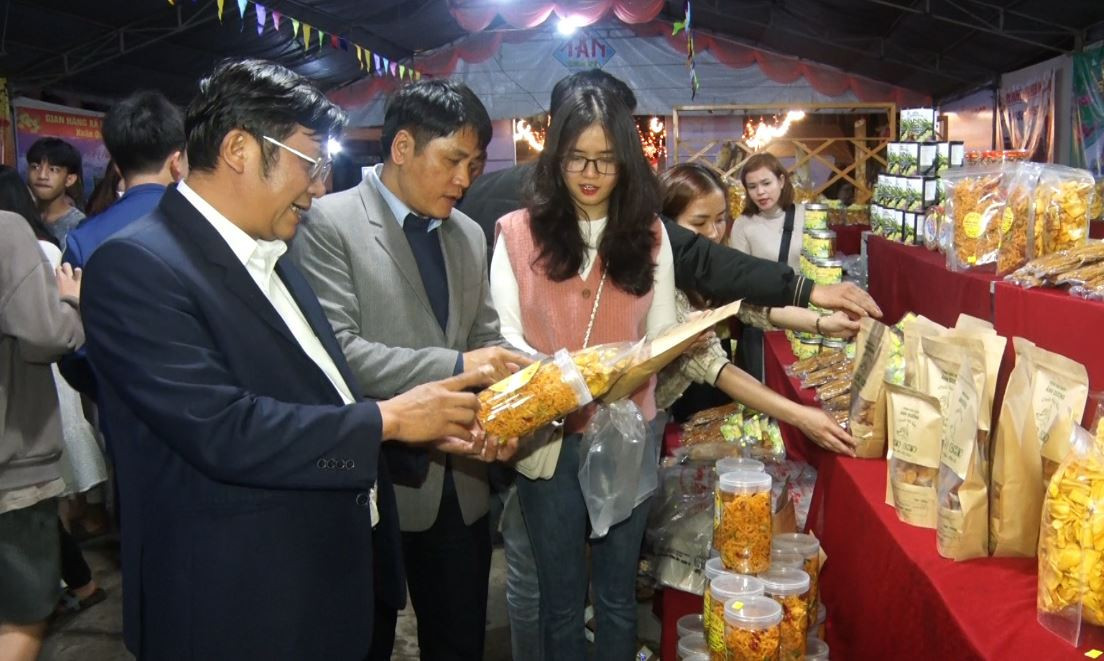
Ethnic minorities currently account for nearly 50% of the population of Huong Hoa district. They live in 21 communes and towns, of which 14 communes are in particularly difficult conditions.
Determining that trade development in ethnic minority and mountainous areas plays a very important role in socio-economic development, the district has concretized investment promotion tasks, creating conditions for the private economy to integrate and develop, becoming an important driving force of the socialist-oriented market economy.
Huong Hoa district has effectively implemented the Program to develop trade activities in mountainous, remote and mountainous areas for the period 2021 - 2025 associated with projects, resolutions, conclusions and plans to implement the Resolution of 17th Party Congress and the Socio-Economic Development Plan for the period 2021 – 2025 of Huong Hoa district, creating motivation for socio-economic development and improving the lives of people in ethnic minority and mountainous areas.
Commercial infrastructure in ethnic minority and mountainous areas in Huong Hoa district has been invested in many forms, with private investment playing an important role. Enterprises, production and business establishments have invested in building and developing service systems, accommodation and dining establishments, introducing and consuming local products.
There are 6 markets and 1 commercial center in Huong Hoa district. Particularly, Huong Phung market which is located in the ethnic minority and mountainous area has been renovated to creating favorable conditions for local people to buy and sell goods.
In 2022, the district’s total retail sales of goods and trade - service revenue reached VND 8,597 billion; an increase of 27.56% compared to 2021. Trade activities in ethnic minority and mountainous areas were carried out effectively, ensuring the people's needs.
Along with the development of domestic trade, border trade activities in ethnic minority and mountainous areas are defined as an important driving force to attract investment and promote socio-economic development in Huong Hoa district. Therefore, the district has strengthened international cooperation activities in all fields with partners in the region and the world. The local authorities have directed relevant bodies to create favorable conditions for import-export activities, cross-border transportation of goods, and promote production and business development.
The local government has also created favourable conditions for residents in the border areas to exchange goods in the form of border trade, mainly via the Lao Bao International Border Gate and some border markets. Agricultural products traded via the border mainly include: bananas, rubber, buffaloes, cows, cassava, pork, aquatic products, and all kinds of fruits and vegetables.
In 2022, border trade activities in Huong Hoa district increased sharply. Total two-way turnover through the Lao Bao International Border Gate reached 516.4 million USD. Of which, export turnover reached 106 million USD and import turnover was 410 million USD.
To promote trade development in ethnic minority and mountainous areas in the coming time, Huong Hoa district has set a goal that by 2030, the total retail sales of goods and services will grow over 9%/year.
The district will encourage the development of traders and businesses of all economic sectors participating in commercial activities, with an average growth of 8 - 10%/year. By 2030, over 90% of trade managing officials will be trained and fostered in skills, expertise in trade development in ethnic minority and mountainous areas.
Huong Hoa District People's Committee will implement investment incentive policies to attract resources to develop commercial infrastructure such as markets, shopping centers, and modern supermarkets in communes, towns, and densely populated areas, meeting the needs of exchanging goods, investing in transportation infrastructure systems connecting border trade, taking advantage of the East - West Economic Corridor and developing trade in ethnic minority and mountainous areas.